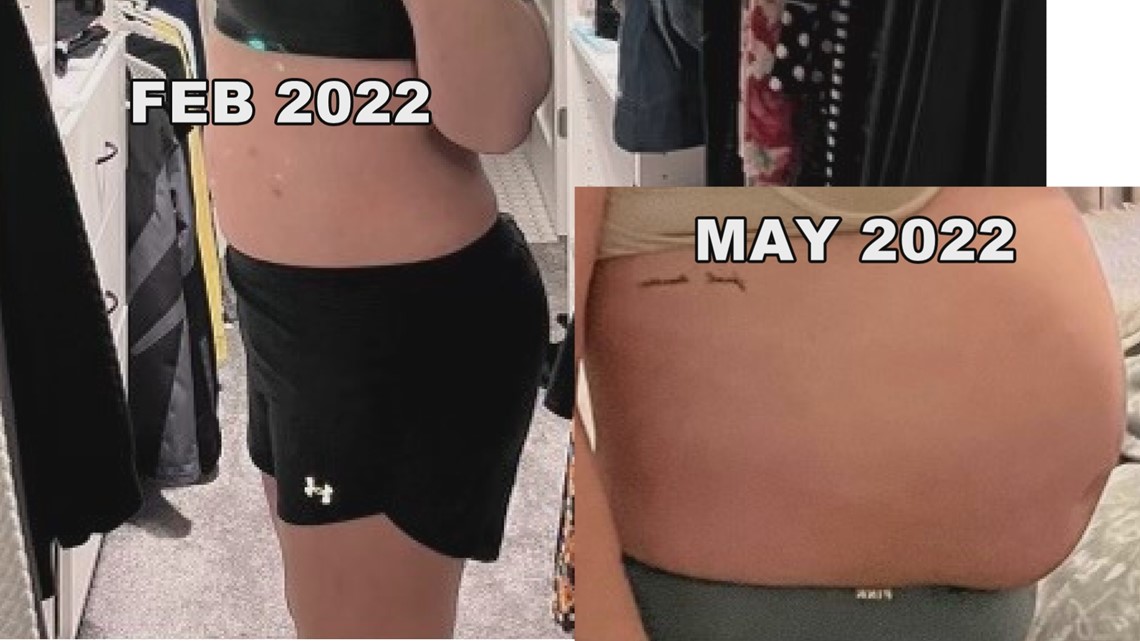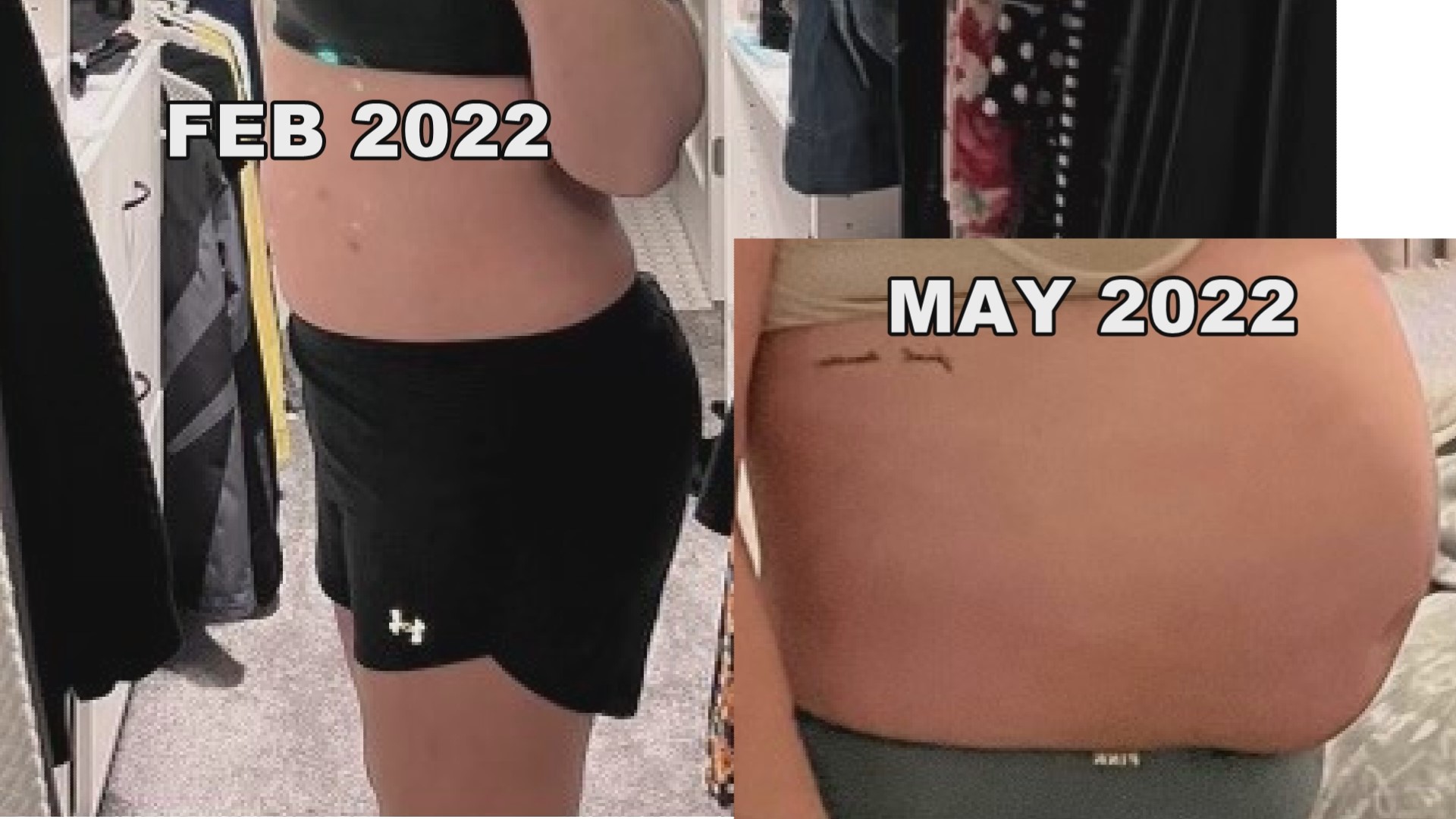NORTON SHORES, Mich. — On this 13 Friends for Life Day, 13 is ON YOUR SIDE with the story of a West Michigan mother who, through testing, learned she had a high risk of developing breast or ovarian cancer. However, even after having her breasts and ovaries removed, she still got the diagnosis she feared most.
This mostly started with Theresa Hurt’s breast cancer diagnosis in 2006, then ovarian cancer in 2010 and then cancer in the other breast in 2014. It’s why Hurt agreed to be tested for what’s known as BRCA1 and BRCA2. The test result revealed that Hurt is a carrier, which means “your risk is increased for mainly breast or ovarian cancer,” according to Kristin Witte, who is a physician assistant with University of Michigan Health-West Hospital.
The National Institute of Cancer says about 13% of women in the general population will develop breast cancer, and about 1.2% will develop ovarian cancer. Witte explained that as a carrier of BRCA1, you have a 55-72% chance of being diagnosed with breast cancer, and a 39-46% chance of being diagnosed with ovarian cancer. As a carrier of BRCA2, you have a 45-69% chance of being diagnosed with breast cancer, and 10-27% chance of being diagnosed with ovarian cancer.
This genetic testing is limited to people with a personal or family history of cancer.
As a carrier, Hurt’s children are also at risk. Soon, her daughter Nicole Phelps of Muskegon would learn she’s also a carrier.
She told 13 ON YOUR SIDE, “I was 29 when I found out my results and they wouldn’t allow me to do a hysterectomy or a double mastectomy and have insurance cover it until I was 35 because I was considered of childbearing age and I might change my mind even though I had two kids that were both extremely difficult pregnancies and I knew that I didn’t want any more kids.”
Just days after her 35th birthday, she went through with the hysterectomy. Weeks later, a double mastectomy.
“It was devastating. I can remember the day that I took off my bandages for the first time and I was flat and I stepped out of the shower and I just, I lost it,” said Phelps.
Multiple surgeries later, she was hoping the worst was behind her, but a few years after, “I felt discomfort every time I moved. I felt very bloated and just uncomfortable,” said Phelps as she continued on about how, “it had been getting worse. I didn’t fit into any of my clothes. I looked like I was six weeks pregnant.”


She says her doctor ignored her concerns, chalking it up to normal weight gain.
The health official we spoke with is not part of Phelps’ medical team, but explains that Phelps was experiencing some of the common signs of ovarian cancer.
“Bloating, pain, changes with bowel or bladder habits,” said Witte.
Phelps’ condition only got worse, one day sending her to the emergency room where doctors performed a CT scan.
“The look on her face, I knew something was wrong,” said Phelps.
Within days, she learned the test results and, “I got the official diagnosis of stage four A primary peritoneal.”
Witte explained that this “is ovarian cancer that arises from the lining of the abdomen. It’s a very rare condition but there’s nothing you can do surgically to prevent that.”
Not even a full hysterectomy will prevent this rare cancer.
“I was just in shock that this could happen when I was trying to take the steps that I should,” said Phelps who further detailed how, “cancer is so hard on every aspect of your life: Emotionally, mentally, physically, financially.”
There has been a GoFundMe setup to support Phelps.
She also said, “It’s hard. It’s really hard. I love my job and that has been a huge support.”
Phelps is a social worker at Lincoln Park Elementary School in Norton Shores.
Jenny Cross is a special education paraprofessional at the school. She described the moment she found out about Phelps’ diagnosis, saying, “I kind of took it hard. It hits personal for me, as well, and I knew right away I didn’t want her to ever feel by herself as she was on this journey and this fight she was about to take on.”
Cross lost her husband to a rare form of cancer 10 years ago and took the lead in building a support system for Phelps, rallying students and staff to help put together gift baskets and cards. She also organized a meal train, where people sign up to provide dinner.
“It takes the thought out of it for me. I don’t care what I get for dinner because I don’t want to make that decision. Surprise me. Make your favorite food. I just ask for no tomatoes or mushrooms,” said Phelps, laughing.
Her colleagues also had special T-shirts made.
Cross explained how they would wear the shirts, “and when she’d go to treatments, we would take pictures of staff and just text them to her with positive messages just to kind of add a smile to her day.”
“It makes me feel so special,” said Phelps.
She finished her ninth and final chemo treatment in December of 2022 and doctors say she’s close to remission.
She says she wants those who see her story to listen to your bodies. She also says don’t let people brush you off, and demand action if you think something is wrong.
►Make it easy to keep up to date with more stories like this. Download the 13 ON YOUR SIDE app now.
Have a news tip? Email news@13onyourside.com, visit our Facebook page or Twitter. Subscribe to our YouTube channel.

